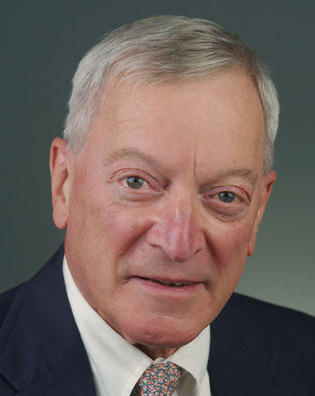 loading
loading
MilestonesA doctor’s life, chronicledRichard Selzer’s prose brought medicine to life.  Yale UniversityYale surgeon Richard Selzer, who died in June, wrote 13 books of fiction, essays, and memoir. View full imageIn Richard Selzer’s short story “Brute,” a giant of a man with a face laceration thrashes and snarls on the stretcher. When the attending surgeon’s exhaustion and frustration curdle into viciousness, he finds himself doing the unthinkable: deliberately and dispassionately suturing the man’s earlobes to the stretcher. Selzer, who died on June 15 at the age of 87, rendered vivid and lyrical the grotesquerie of medicine—metastatic melanoma’s “black meat” was “an eggplant and three plums plucked from the belly of a man.” Yet he also mused on Rothko’s No. 3, rewrote Thomas Mann’s The Black Swan, and offered an alternative ending to A Tale of Two Cities. His ability to transform small and easily overlooked medical moments into lushly detailed and compelling stories whetted my curiosity about a career as a doctor—no small feat, given that I was a Yale English major agnostic to the world of science and medicine. Until then, medicine had seemed antiseptic and devoid of passion. Selzer’s prose elegantly stitched together the worlds of medicine and the humanities in a way that was as vibrant and rich as it was artful. Born in Troy, New York, Selzer served in the Army in Korea in the mid-1950s, then practiced general surgery at Yale for almost three decades. Before he retired from surgery at 58 to write full-time, he would set an alarm in the dead of night and write for several hours before heading to the hospital. He was also a fixture at Sterling Memorial Library, scribbling away with pen and pad. Altogether, he wrote 13 books—essay collections, short stories, diaries, and a novel. I shouldn’t have been surprised when Selzer accepted my invitation to teach in the Yale Internal Medicine Residency Writers’ Workshop a few years after I returned to New Haven. After all, he’d been teaching creative writing to medical and nursing students, gratis, for years. Seated at opposite ends of the large table in the Graduate Club library, surrounded by young doctors in training, we engaged in lively debate over whether a phrase was mundane or masterful. Ask any student of Selzer for their favorite take-home lessons, and you’ll no doubt hear exhortations to use more allusions and more metaphor; to write stories, not sermons; and, perhaps most importantly, something that Selzer achieved in his own inimitable and splendid voice: “to amuse, fascinate, or charm.”
The comment period has expired.
|
|